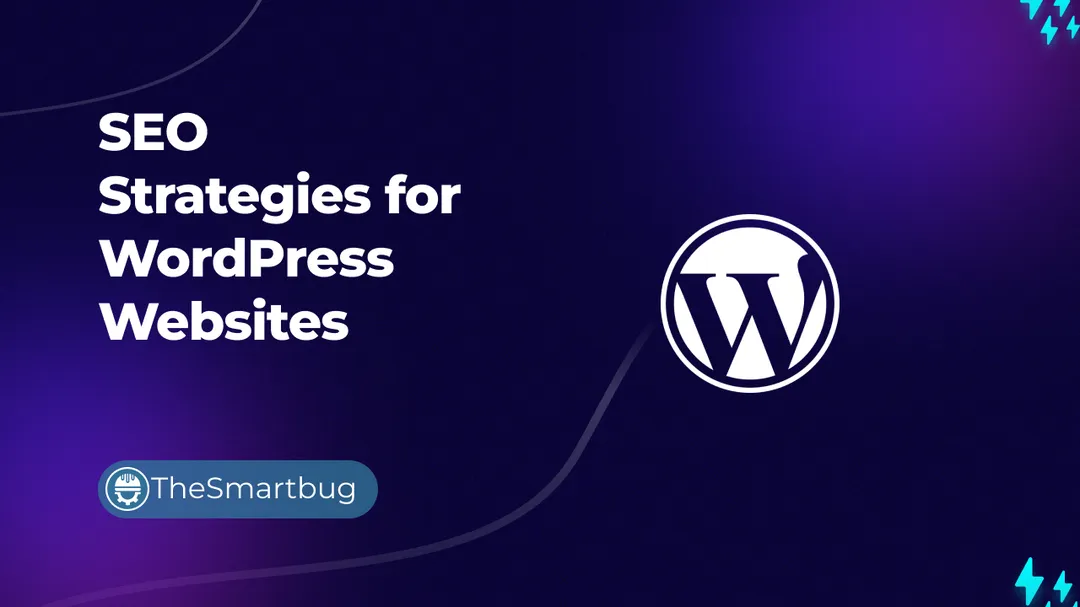Having a website is just the first step. To ensure your WordPress site attracts visitors and drives business growth, you need effective SEO (Search Engine Optimization) strategies. SEO is crucial for improving your site's visibility on search engines, bringing in organic traffic, and ultimately increasing conversions. Here’s a comprehensive guide to the best SEO strategies for WordPress websites.
1. Choose an SEO-Friendly Theme
The foundation of your WordPress site’s SEO starts with the theme you choose. An SEO-friendly theme ensures fast loading times, mobile responsiveness, and clean code. Themes like Astra, GeneratePress, and OceanWP are popular choices that offer these features, giving your site a solid SEO base. Though Astra is a little old fashioned these days.
2. Optimize Your Permalinks
Permalinks are the URLs of your web pages. An optimized permalink structure makes your URLs clean and keyword-rich. Go to Settings > Permalinks in your WordPress dashboard and select the “Post name” option. This structure is simple, readable, and SEO-friendly.
3. Use SEO Plugins
SEO plugins like Yoast SEO and All in One SEO Pack are essential tools for optimizing your WordPress site. These plugins guide you in optimizing your content, meta descriptions, titles, and more. They also offer features like XML sitemap generation, breadcrumb navigation, and social media integration.
4. Conduct Keyword Research
Keyword research is the backbone of any SEO strategy. Use tools like Google Keyword Planner, Ahrefs, or SEMrush to find relevant keywords with high search volume and low competition. Incorporate these keywords naturally into your content, headings, meta descriptions, and URLs.
5. Optimize Your Content
High-quality content is crucial for SEO. Ensure your content is informative, engaging, and valuable to your audience. Use keywords strategically, but avoid keyword stuffing. Aim for longer content, as it tends to rank better. Use headings (H1, H2, H3) to structure your content, making it easier for search engines to understand.
6. Improve Your Site’s Loading Speed
Site speed is a critical ranking factor. Use tools like Google PageSpeed Insights and GTmetrix to analyze and improve your site’s loading speed. Optimize images, leverage browser caching, and use a content delivery network (CDN) to enhance performance. Plugins like WP Rocket and W3 Total Cache can help you achieve faster load times.
7. Mobile Optimization
With the majority of searches happening on mobile devices, having a mobile-optimized site is non-negotiable. Ensure your theme is responsive, meaning it adjusts to different screen sizes. Use Google’s Mobile-Friendly Test tool to check your site’s mobile compatibility.
8. Optimize Images
Large images can slow down your site, negatively impacting SEO. Use image optimization plugins like Smush or ShortPixel to compress images without losing quality. Add descriptive, keyword-rich alt text to your images to help search engines understand and index them.
9. Build Quality Backlinks
Backlinks from reputable sites signal to search engines that your site is trustworthy and authoritative. Focus on building high-quality backlinks through guest blogging, creating shareable content, and engaging in industry forums. Avoid black-hat techniques like buying links, as they can harm your SEO.
10. Use Internal Linking
Internal linking improves site navigation and helps distribute page authority throughout your site. Link to relevant posts and pages within your content to keep visitors engaged and guide search engines through your site’s structure.
11. Create an XML Sitemap
An XML sitemap helps search engines understand your site’s structure and index it more efficiently. SEO plugins like Yoast SEO and All in One SEO Pack can generate an XML sitemap for you. Submit this sitemap to Google Search Console to improve your site’s indexing.
12. Leverage Social Media
Social media signals can indirectly influence SEO by driving traffic to your site and increasing content visibility. Share your content on platforms like Facebook, Twitter, LinkedIn, and Instagram to reach a broader audience and encourage backlinks.
Conclusion
Implementing these SEO strategies will significantly enhance your WordPress site’s visibility and performance on search engines. Remember, SEO is an ongoing process that requires regular updates and adjustments. Stay informed about the latest SEO trends and algorithm changes to keep your site optimized and competitive.

